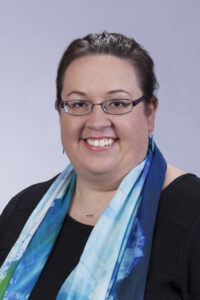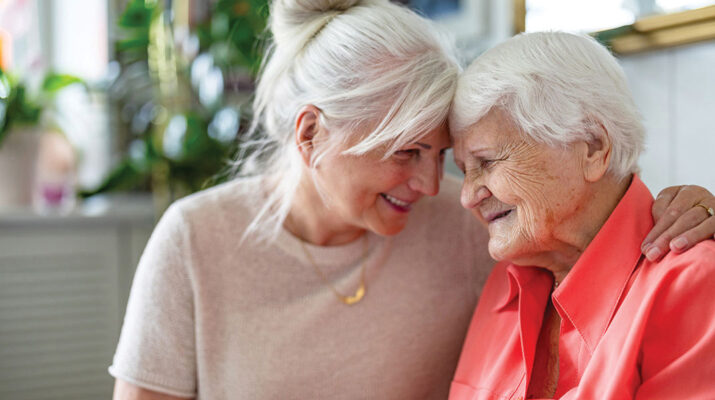Many resources can assist people caring for people with dementia
By Deborah Jeanne Sergeant

Taking care of someone with Alzheimer’s or another form of dementia brings many challenges. However, numerous community resources may help. For example, learning more about dementia may make caregiving easier.
“Educational resources provide caregivers with information about the disease and strategies for addressing daily needs,” said Liz Nelson, representing Everyday Hands in the Rochester area. “Certain organizations may hold day retreats or seminars for both caregivers and those they care for. During these programs, loved ones are looked after on-site while caregivers participate in activities. These seminars can help individuals who lack other support access additional resources.”
Sometimes talking with someone else who has a similar experience can make caregiving easier. Nelson also believes that support groups and counseling — both in-person and online — can “enable caregivers to exchange experiences and obtain support and guidance for navigating complex circumstances.”
Caregivers need a break. Early in the disease process, safety technology such as GPS tracking devices and residential security cameras can provide families with peace of mind. People who may need help overnight could benefit from a two-way audio monitor to connect caregivers who stay in the home.
Nelson said that adult day centers can provide regular respite, which can include meals and activities. There are also in-home respite services by professional companion caregivers or home health aides, depending upon the level of care needed. Some people need medical care like occupational and physical therapy; others need only medication reminders and help with activities of daily living, transportation and nutrition.
Sometimes trusted relatives or friends can offer a few hours or days so caregivers can get away.
Nelson also mentioned short-term stays in assisted living or memory care facilities.
Nearly all people with dementia will need help with legal and financial matters. Nelson suggested elder law attorneys who can help with powers of attorney, long-term care planning, financial planning and estate planning.
“Social workers and geriatric care managers provide services including the development of comprehensive care plans, assistance with insurance benefits and documentation and serve as valuable resources for supporting families,” Nelson said.
Physician Marla Beth Bruns, PhD and director of Rochester Regional Health’s Memory Center at Unity, part of the RRH Neurosciences Institute, recommends reaching out to Lifespan of Rochester, “which contains a wealth of information, guidance and services for older adults and caregivers” as well as the Alzheimer’s Association, which she called “another great resource for caregivers and family including their online message boards at alzconnected.org.”
In addition to senior centers, geriatric care management like Care Patrol and Together in Caring, Bruns mentioned taking up people on their offers for helping out.
“I encourage caregivers to be direct with family about ways they can help,” she said. “Be specific: “Could you come on Sunday afternoon to play cards with Dad?” or “I need help; what if you bring Mom to dinner on Tuesday and Thursday nights and I can do the rest?”
She also encourages caregivers to pursue counseling and support groups.
“By connecting with others facing similar situations, caregivers often feel more empowered, supported and better equipped to care for their loved ones and themselves,” she said.
As Bruns mentioned, one of the biggest resources nationwide but with local chapters is the Alzheimer’s Association.
“The Alzheimer’s Association provides a variety of resources specifically designed to support family caregivers of individuals with Alzheimer’s disease,” said Jessica DesRosiers, senior director of programs and services for the CNY chapter. “These resources can be incredibly helpful in managing the emotional, physical and logistical challenges of caregiving.”
She listed as key educational resources such as online classes, webinars, brochures and downloadable guides about Alzheimer’s disease progression, communication strategies and daily care tips.
These “empower caregivers with knowledge to understand the disease stages, offer practical strategies for handling behavior changes and daily challenges and reduce uncertainty and anxiety by setting realistic expectations,” DesRosiers said.
The organization also operates a 24/7 helpline (1-800-272-3900) for free, confidential support from trained professionals around the clock.
“Caregivers can get immediate help during a crisis or when making difficult decisions,” DesRosiers said. “It offers emotional support at any hour, especially valuable during isolating or overwhelming times.”
The Alzheimer’s Association support groups include in-person and online groups for caregivers to commiserate and swap tips.
“The groups provide emotional support and reduce feelings of isolation, connect caregivers with others going through similar experiences, fostering a sense of community and give practical advice from peers can be more relatable than clinical recommendations,” she added.
If more direct help is needed, the organization’s care consultation services can give one-on-one sessions with dementia care experts to plan care and solve problems. DesRosiers said that this is tailored to each family’s needs and helps families “navigate difficult decisions, such as home care versus facility care.”
The Alzheimer’s Association’s legal and financial planning guidance offers information and tools to help with legal documents and financial planning. This can ensure the patient’s wishes are honored and it can also reduce stress for the family and caregivers.
As a national organization with local chapters, the Alzheimer’s Association offers community programming and local events.
“The Alzheimer’s Association supports caregivers through education, emotional support, crisis help, personalized planning, safety tools, legal/financial guidance and local services,” DesRosiers said. “These resources are crucial because caregiving for someone with Alzheimer’s is a long, emotionally intense journey — and being informed, supported and connected can make all the difference.”

